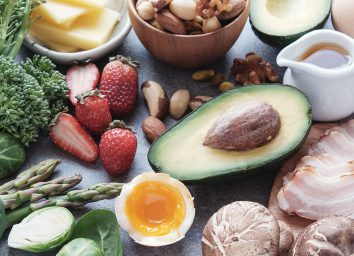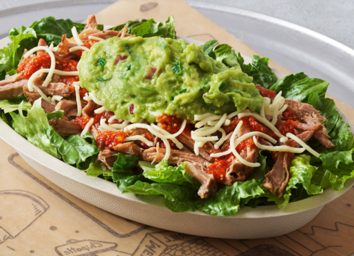The Best & Worst Keto Diet Supplements
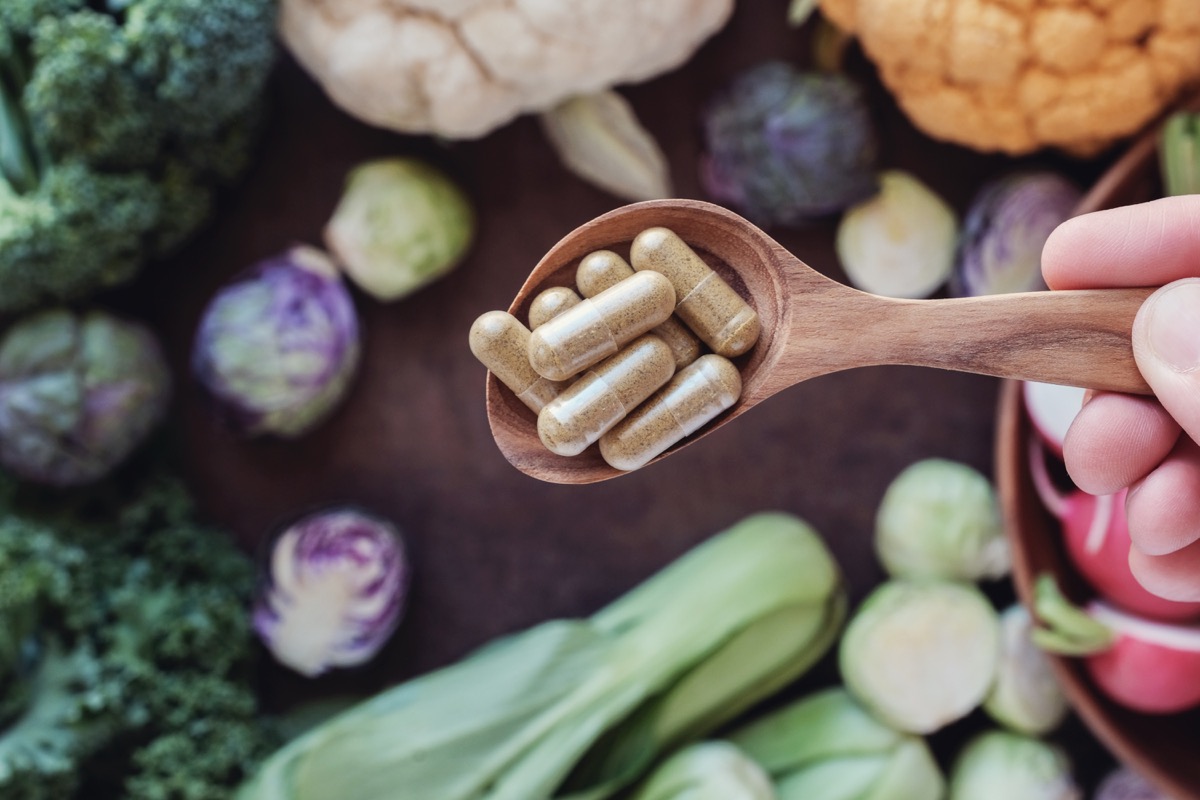
Hello, keto friends. Welcome to High-Fat, Low-Carbville; population: 1 billion. Or so it seems, with the wildly popular ketogenic diet rapidly garnering converts across the globe. But because keto-ers are compelled to remove many high-carbohydrate foods from their daily routine, they can miss out on certain nutrients that aren’t found in keto foods and may need certain keto supplements to maintain a well-balanced diet.
Now that you’ve got your keto grocery shopping list down, you may be wondering how to round out the keto diet with certain supplements to help you thrive on the keto diet. If you’re going keto and want to function at your prime, keto supplements may indeed be a key part of your success.
Here, we tapped nutritionists on the top keto supplements to take—and what to skip—when you say all aboard to the keto bandwagon.
The Best Keto Supplements to Take
Because the keto diet restricts your carb intake, you may miss out on many nutrients that are particularly concentrated in these foods. To ensure you stay healthy and keep your body in shape while on the keto diet, make sure you’re getting enough of these keto diet supplements in your regular diet.
Magnesium
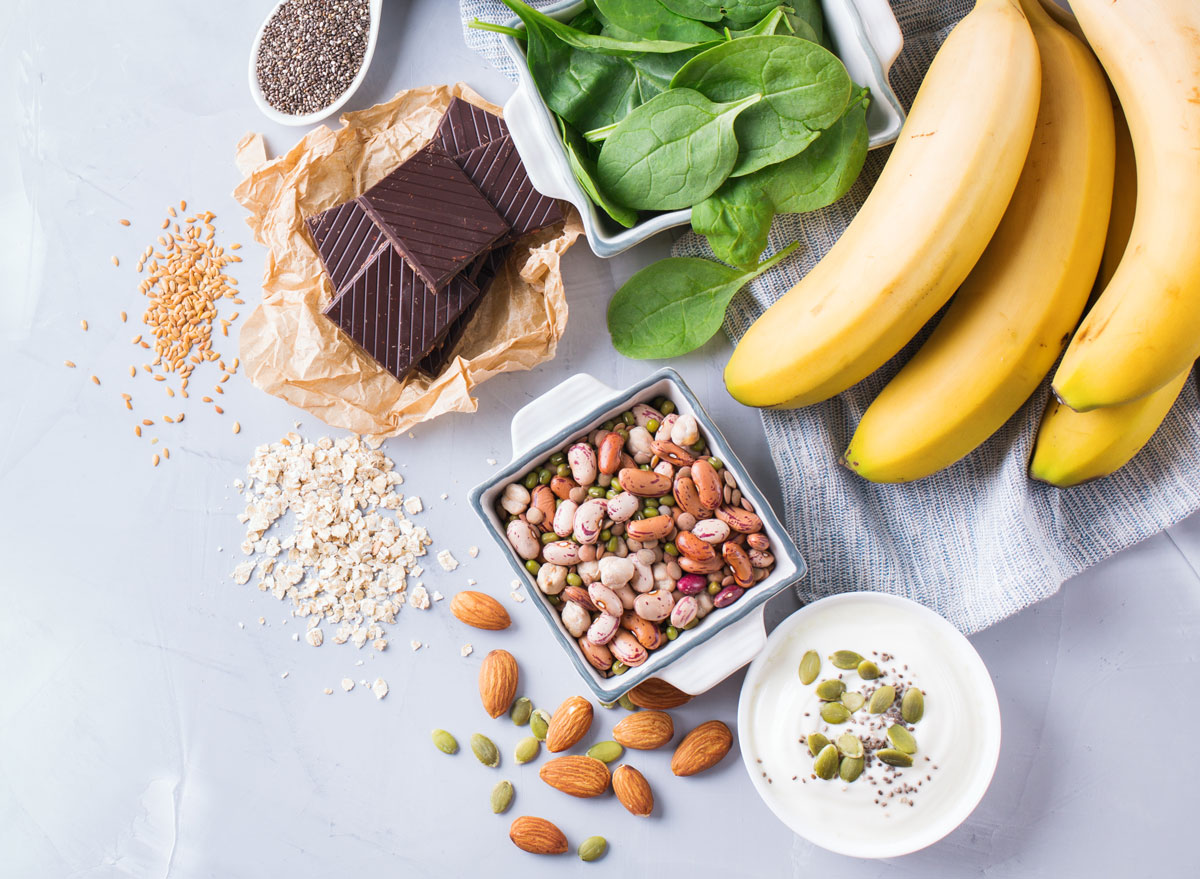
Science geeks, this one’s for you: “You will urinate more on the keto diet. One of the key electrolytes lost through urination is magnesium. Magnesium is an energy mineral, which will help you burn fat and lose weight. Of the 700-800 magnesium-dependent enzymes, the most important enzyme reaction that magnesium contributes to involves the creation of energy by activating adenosine triphosphate (ATP), the fundamental energy storage molecule of the body,” Carolyn Dean, MD, ND, bestselling author and founder of RNA Reset. Unfortunately, the keto diet is not particularly full of magnesium-rich foods.
“Magnesium deficiency can occur because keto foods are high in calcium and low in magnesium, which can result in muscle cramps, constipation, and the keto flu.” To combat these ailments, Dean suggests hydrating sufficiently and adding sea salt and an absorbable form of magnesium to your water. “This will definitely make following this type of diet safe and easier to follow and will help you avoid the loss of energy, sluggishness, and headachy feeling associated with electrolyte depletion on the keto diet,” Dean notes.
Vitamins A, C, and K, plus Folate
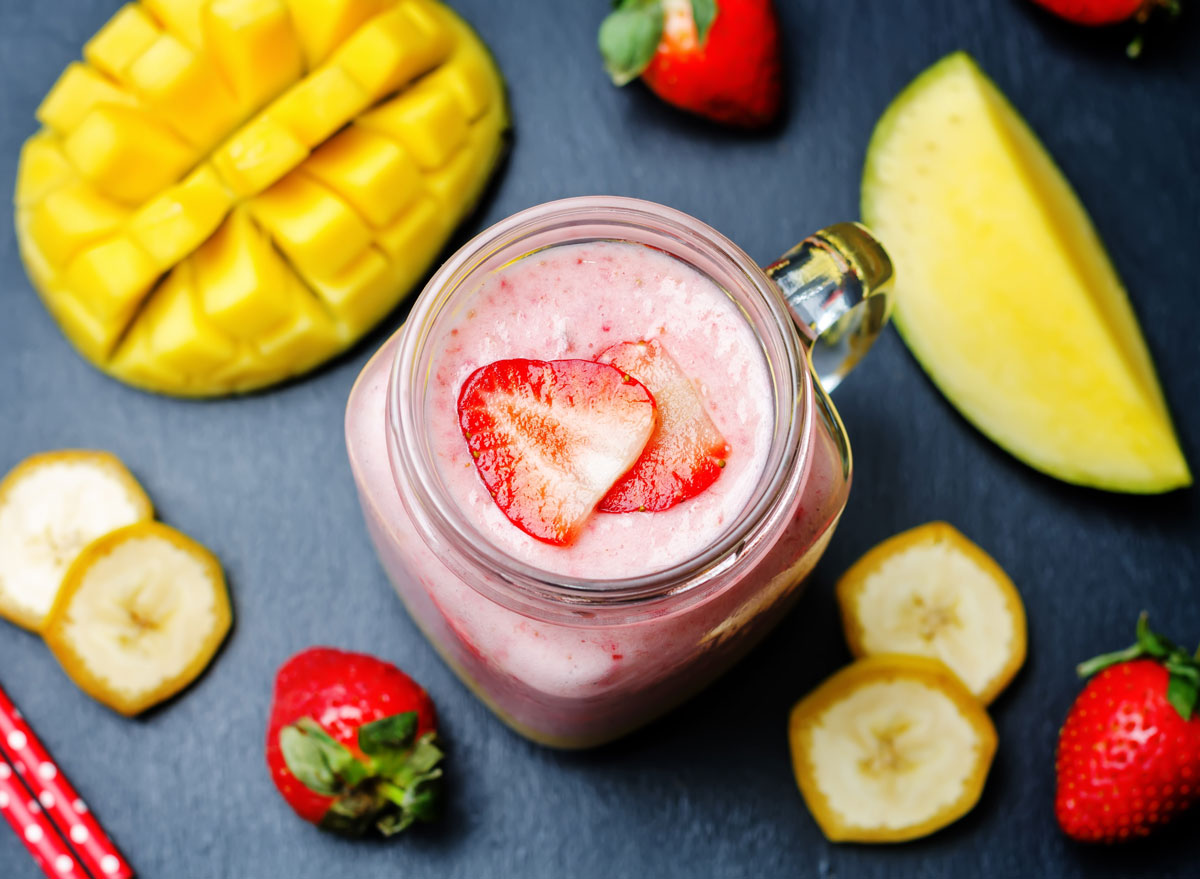
Yes, all of the above—and perhaps even more vitamins will be key if you go keto. “The ketogenic diet typically cuts out carbohydrate foods like fruits, vegetables, and starches/grains, all of which contain lots of vitamins and minerals (whether they are found naturally in the food or enriched). When thinking about the adequacy of the ketogenic diet, think about what foods are limited and what nutrients they contain,” explains Amanda A. Kostro Miller, RD, LDN, who serves on the advisory board for Smart Healthy Living. “People who are on a keto diet for the long term are at risk for developing deficiencies in vitamin A, C, K, and folate (as well as other minerals/vitamins).”
The bottom line, in Kostro Miller’s opinion? “If you want to follow a long-term keto diet, make sure to see a dietitian. You should also consult your doctor because there are several diseases in which the keto diet is contraindicated.”
Carnitine
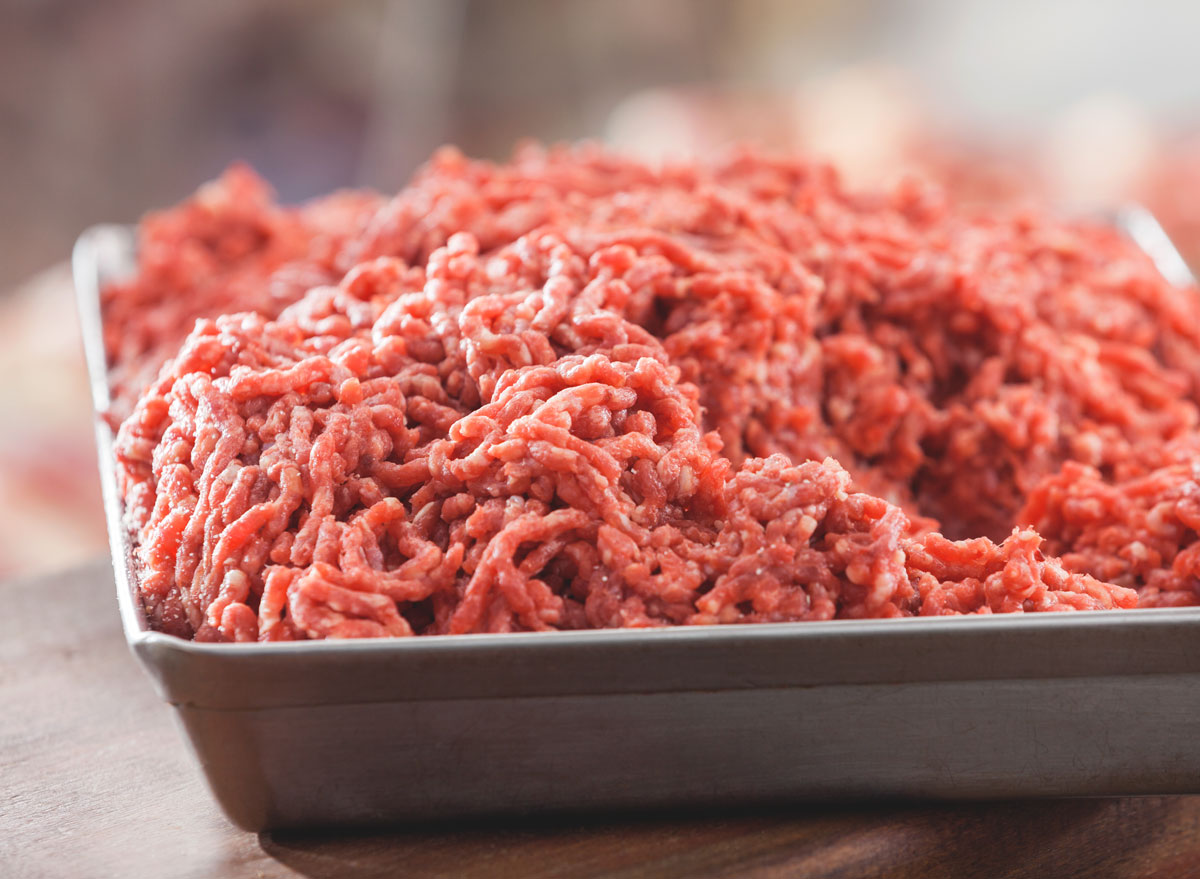
“I recommend carnitine supplementation while following the keto diet,” says Lauren Manaker, MS, RDN, and co-author of Keto for Fertility. Carnitine is naturally found in many foods allowed on the keto diet, like steak, ground beef, codfish, and chicken. However, supplementing your diet with even more of the nutrient can help your body process the high levels of fat you’ll be eating. “Carnitine aids with fat digestion,” says Manaker, “and with the increased fat intake that comes along with this diet, the additional support may be necessary.”
Calcium and Magnesium
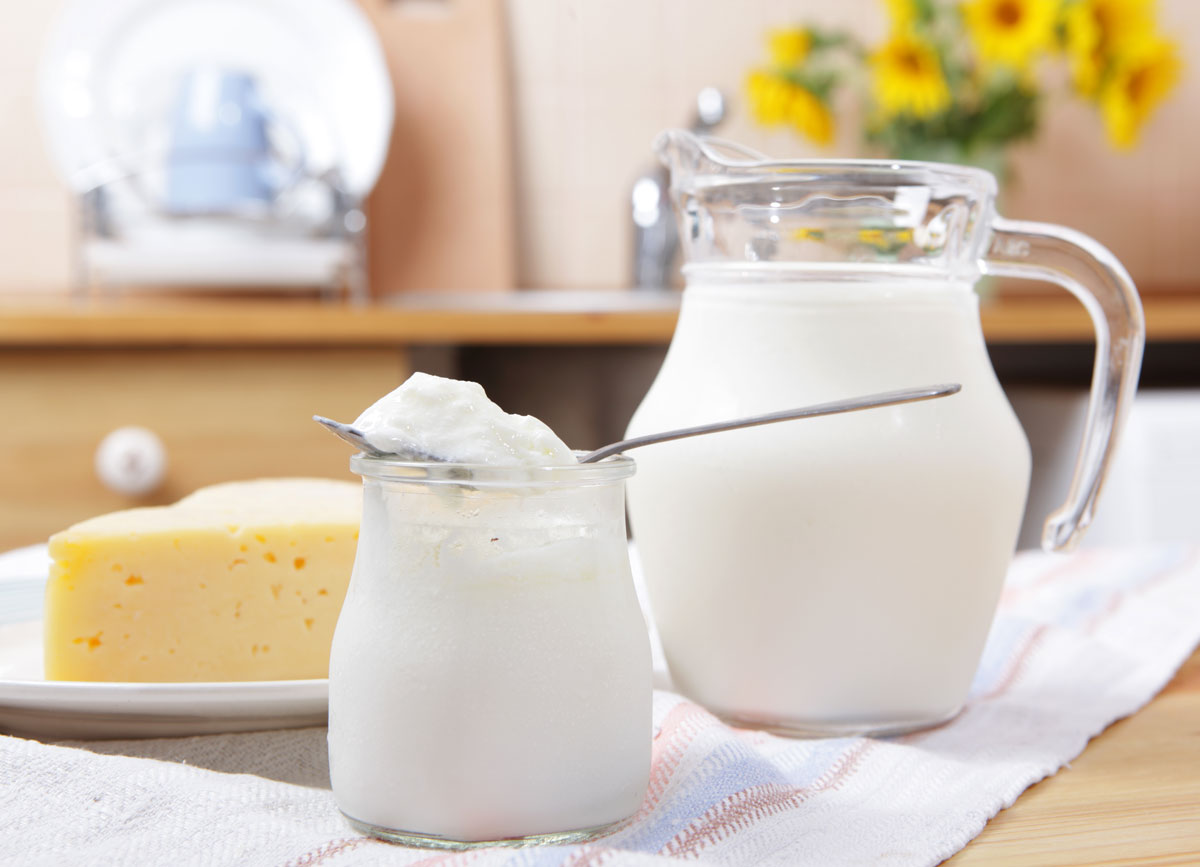
These key electrolytes don’t become any less pivotal just because you’ve gone keto. “I also recommend a calcium and magnesium supplement, especially for women,” advises Manaker. “Many women do not take in enough of these important minerals, and with the elimination of many calcium-rich foods and magnesium-rich foods while following this diet, a deficiency is even more possible.” If possible, avoid taking calcium supplements with an iron-rich meal, because the two minerals may compete for absorption in your body, Manaker says.
Fiber
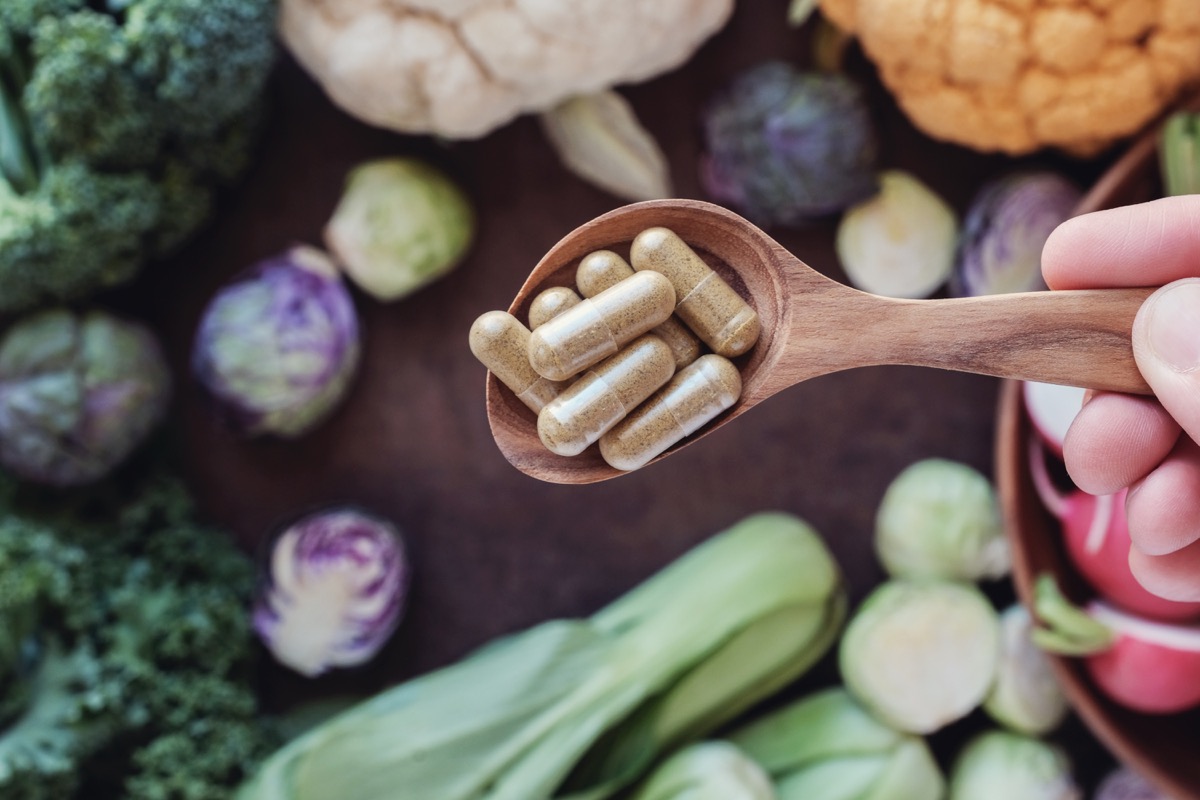
Yes, your gut will thank you. There are many benefits of a high fiber diet, but they are particularly important for those following keto. “Fiber is so important on a keto diet, to keep your bowels moving, to fill you up on fewer calories, and to flush toxins out of the body,” says Brocha Soloff, RD of iHeart Health. “Fiber also helps naturally lower cholesterol, especially on a high-fat keto diet, you need to be concerned about that.”
Of course, getting fiber from a food source is better than supplement form—Soloff’s go-tos are high-fiber vegetables that are also keto-friendly, like:
- Brussels sprouts
- Artichokes
- Edamame
- High-fiber bars
- High-fiber seed crackers
You can also try a fiber supplement like psyllium husk capsules or inulin powder.
Digestive Enzymes
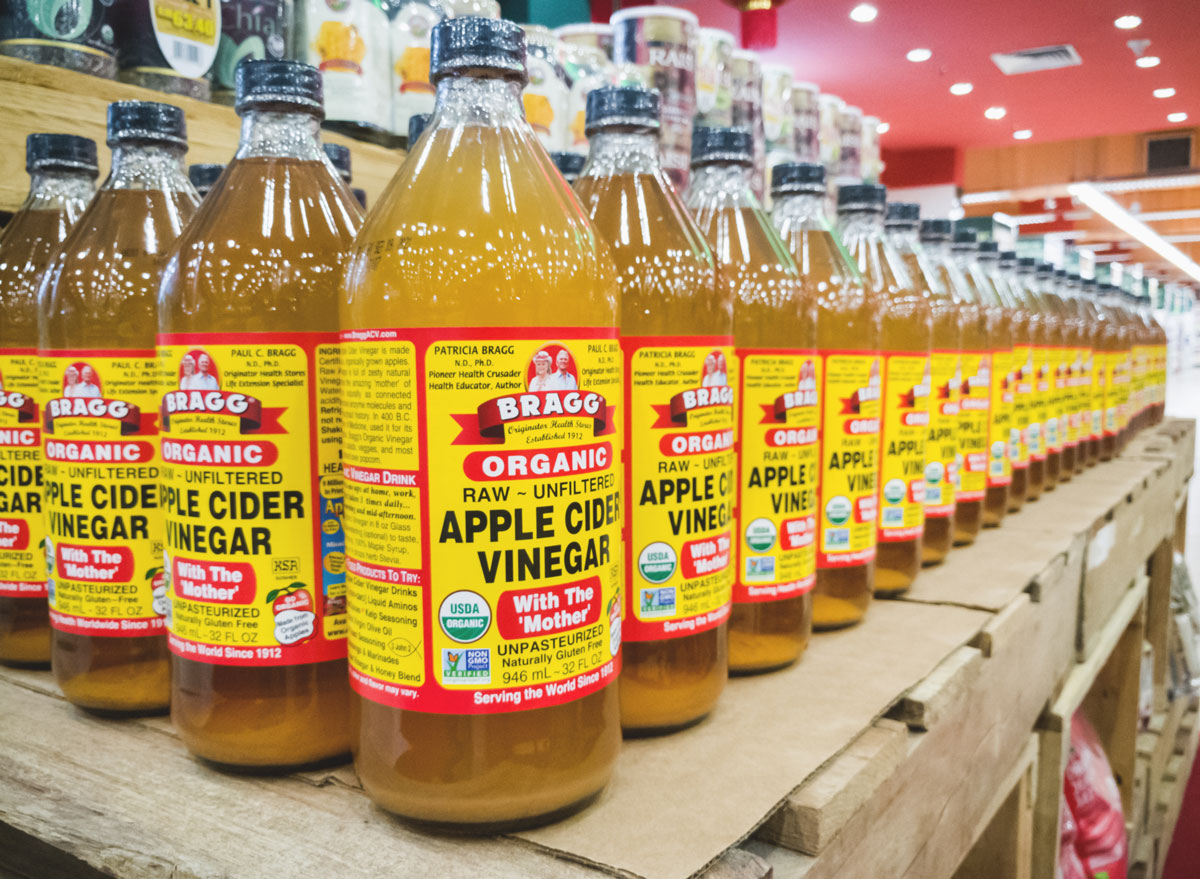
If you feel like you’re suffering from digestive distress while on the keto diet—nausea, bloating, excessive fullness—it could help to try a digestive supplement. “Especially as we get older, our natural production of digestive enzymes decreases,” says Anna Cabeca, DO, author of The Hormone Fix. “An easy add is organic apple cider vinegar (with the Motherwort), just take one tablespoon each morning or before meals.”
Probiotics and Prebiotics

“Keto dieters should also consider taking probiotics for management of your gut flora,” says Kostro Miller. Probiotic benefits include weight management, lower levels of inflammation, improved digestion, and potentially a decrease in stress and anxiety. Another key food group for proper gut health is prebiotic foods. These high-fiber foods act as a food source for the good gut bacteria in probiotic foods. “Prebiotics and probiotics are generally found in plant-based foods that are often eliminated on a keto diet,” Kostro Miller says. Many probiotic foods, such as yogurt and kimchi, contain too much sugar and carbs than is allowed on the keto diet, while prebiotic foods are also high in carbs. It may be worth investing in the supplement versions of both.
A Clean, Green Protein Powder
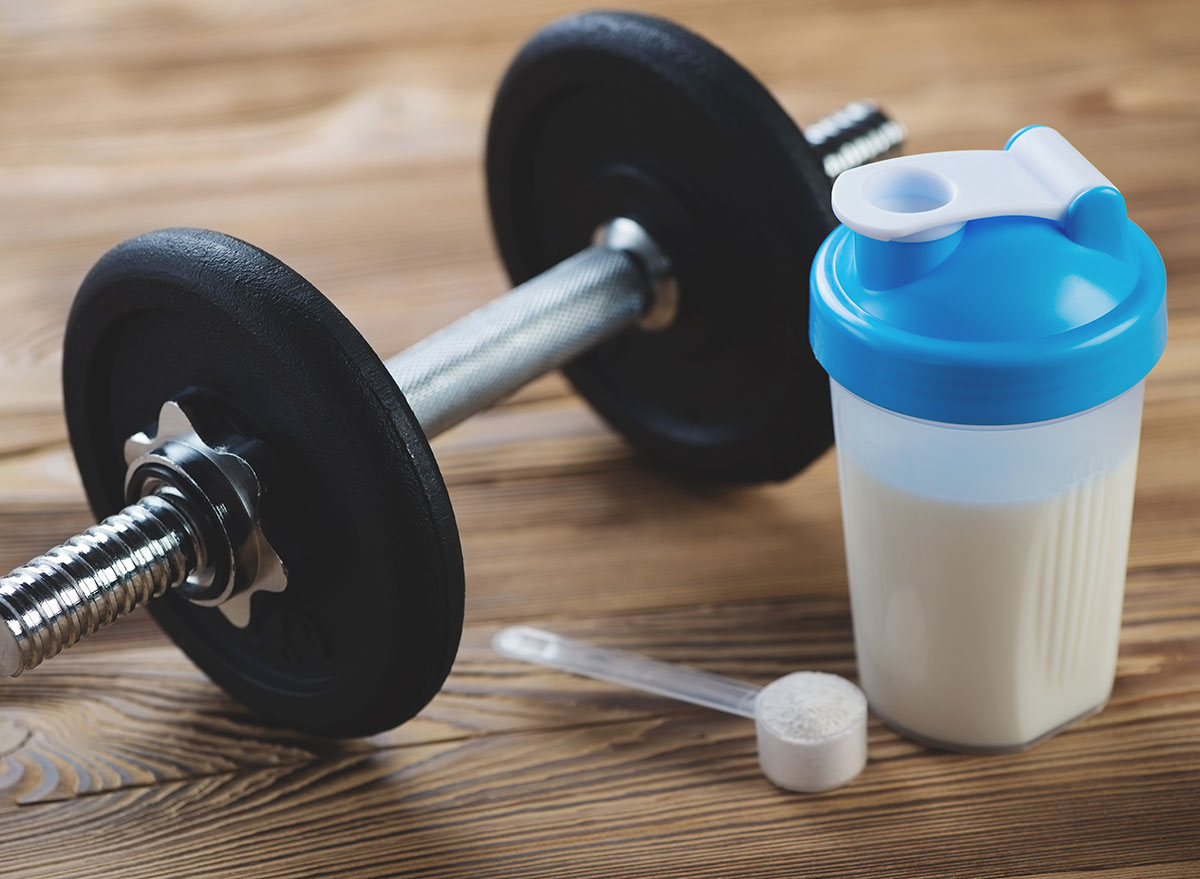
“I use a vegan keto protein powder with zero grams sugar, that has protein from seeds as part of its composition. Keto can be a very acidifying diet, so adding alkalinizing nutrients and plant proteins is very supportive,” says Dr. Cabeca.
“I will make a keto-green shake with the protein powder, add a quarter of an avocado, a handful of greens, and coconut water, and blend. I highly recommend it as a meal substitute or if needed between meals,” says Dr. Cabeca, who uses her Keto-Green All-in-One Meal Replacement.
What Keto Supplements to Avoid
Not all keto supplements are going to be good for your overall health. Be wary of purchasing and taking these keto supplements while on the diet.
MCT Oil
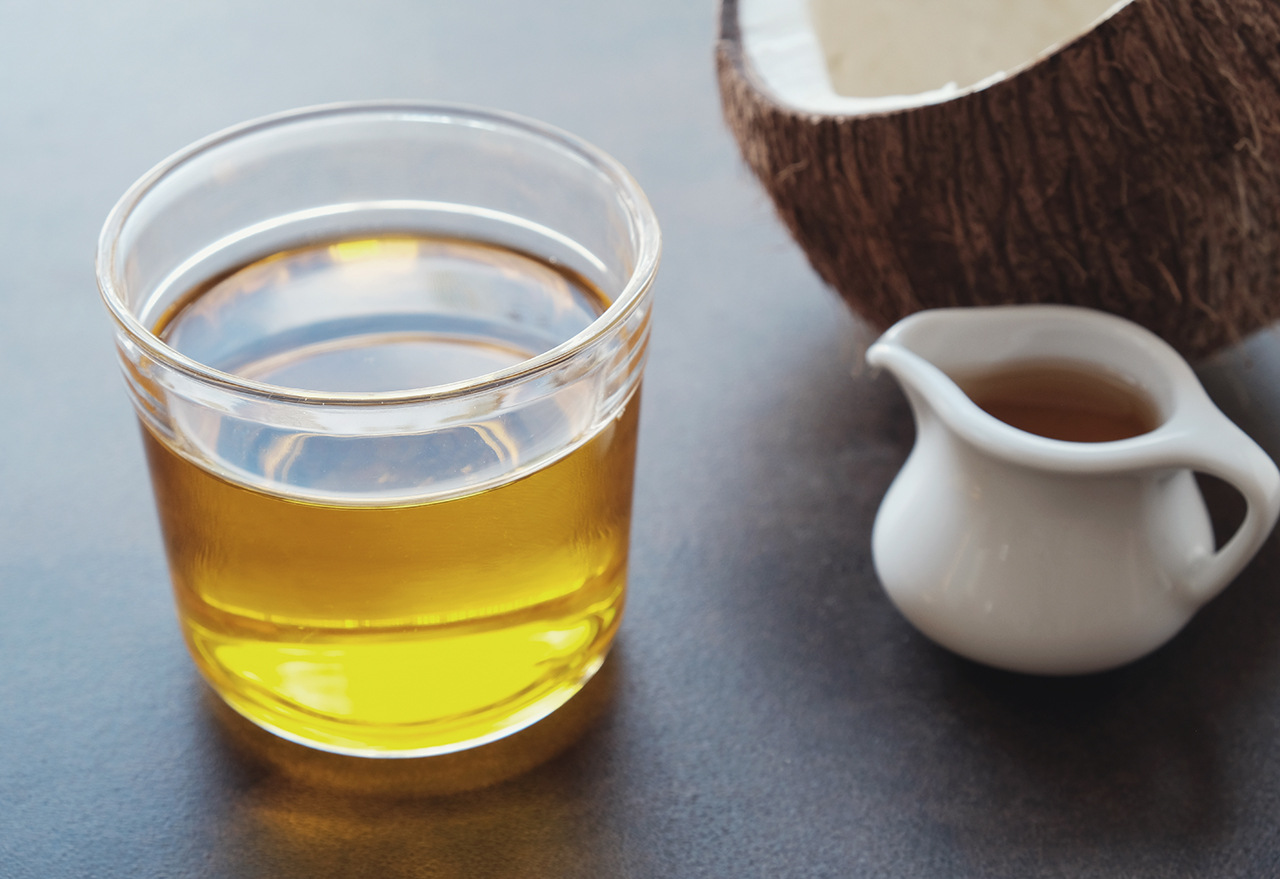
Medium Chain Triglycerides, or MCT oil, may get a lot of attention, but there’s no reason for keto-ers to stock up on this buzzy purchase. “Don’t waste your money on MCT oil. It’s not bad for you, but there is no particular added benefit,” says Soloff. “Research shows that while MCT oil can help boost ketone production slightly, it has no significant impact on weight loss, exercise performance, or brain function, and may actually worsen your cardiovascular health due to its high saturated fat content. MCT oil is overpriced, overhyped, and delivers none of the marketing claims commonly used to sell it,” she says, noting that coconut oil is a better alternative.
Ketone Esters
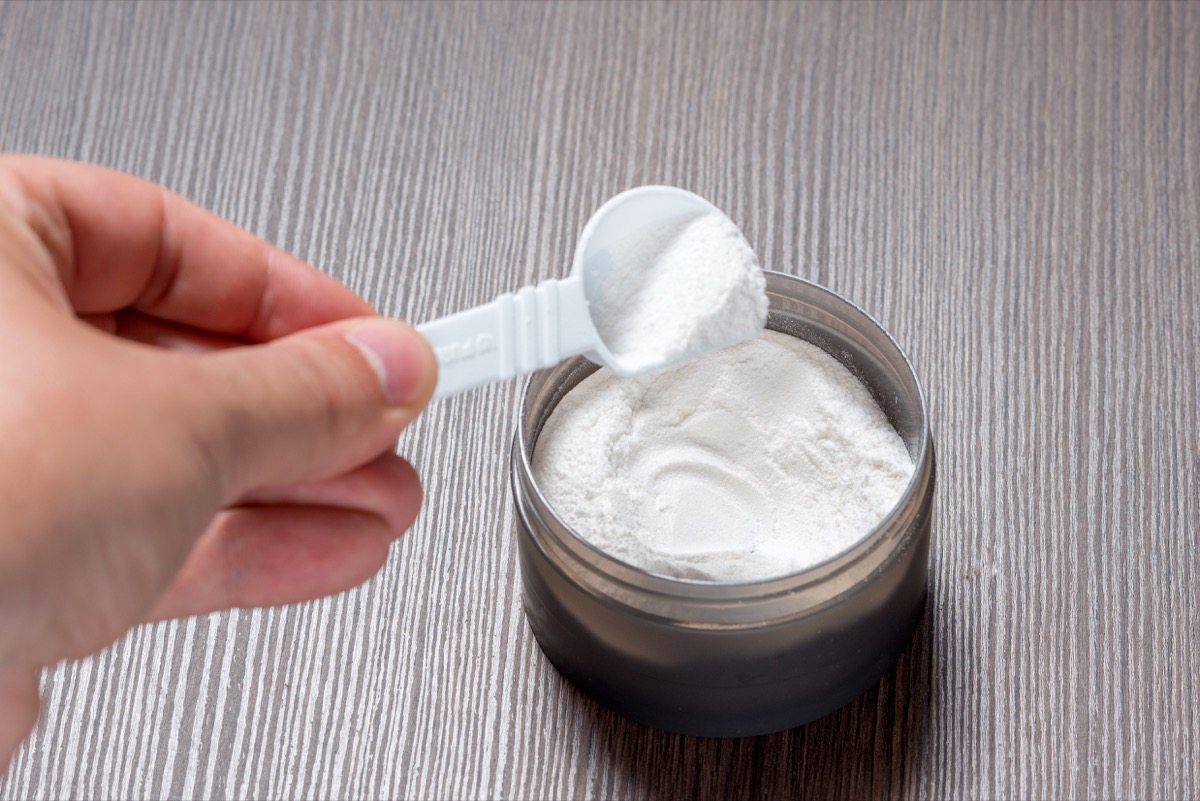
Your body produces ketones when you get into a state of ketosis. Your liver makes ketones by breaking down fat stores to use as fuel. While this process happens naturally in the body, some people take ketone ester supplements to boost the ketosis process, help to reduce symptoms of the keto flu, and maintain energy levels. And while a ketone ester supplement might be worth investing in during your preliminary keto diet stages, experts don’t recommend keeping up with them throughout the diet. “I am not a big fan of the keto esters for long-term,” says Dr. Cabeca. “If needed to start out and help with intermittent fasting and weaning off of carbs, that’s OK, but it’s better to get keto-adapted ourselves.”
Keto Bottled Drinks
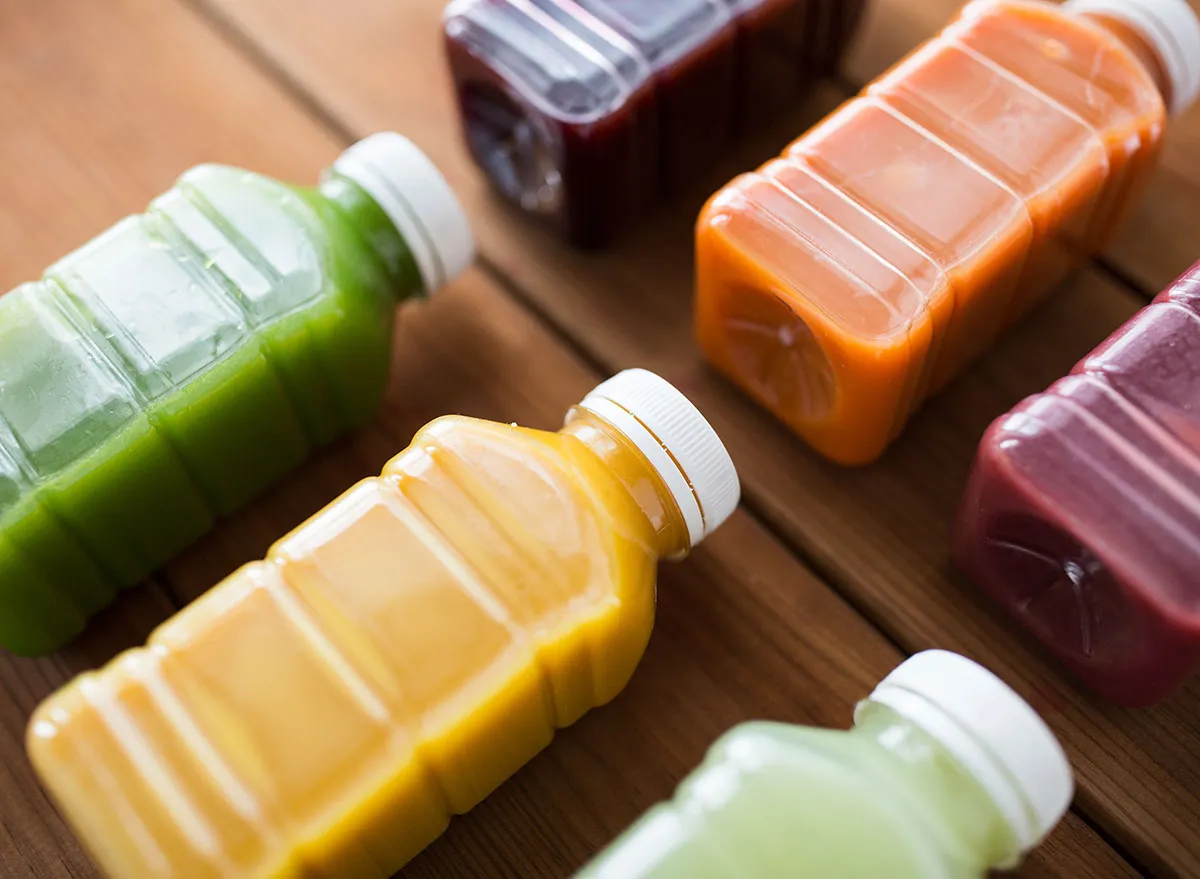
“Keto drinks and protein shakes/juices do not have to be included in the keto diet. As with any eating pattern, it is best to obtain protein and other nutrients from food sources as much as possible,” says Kostro Miller. “The keto shakes/drink supplement powders really are just marketing for the keto diet. Instead of relying on these supplements, choose real food to fuel your body and reach your nutrition goals.”


